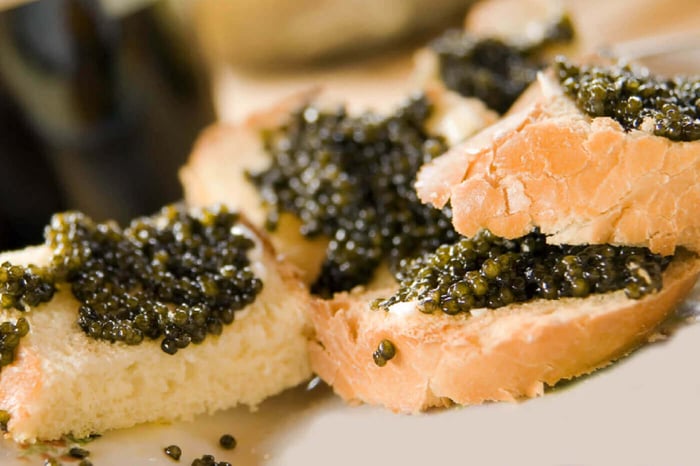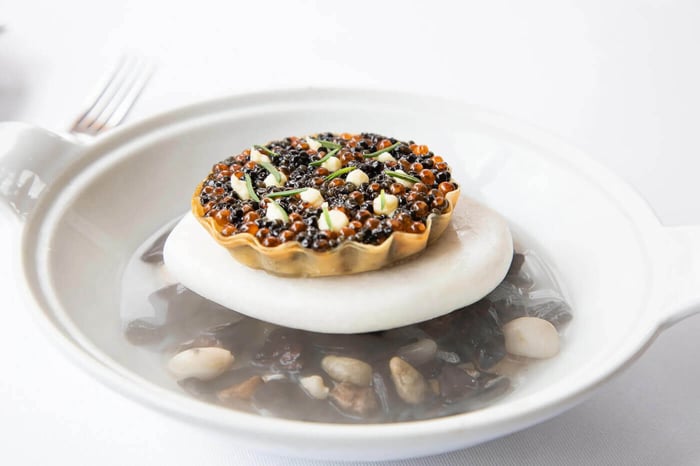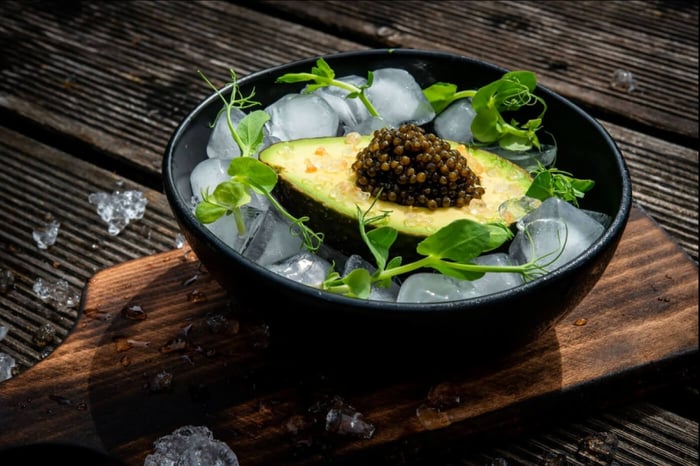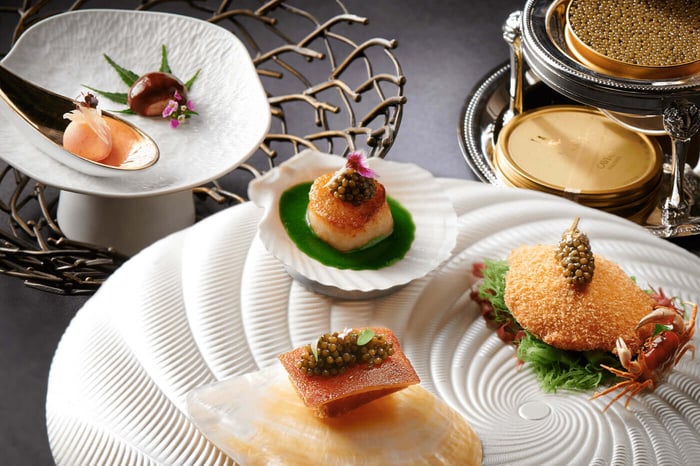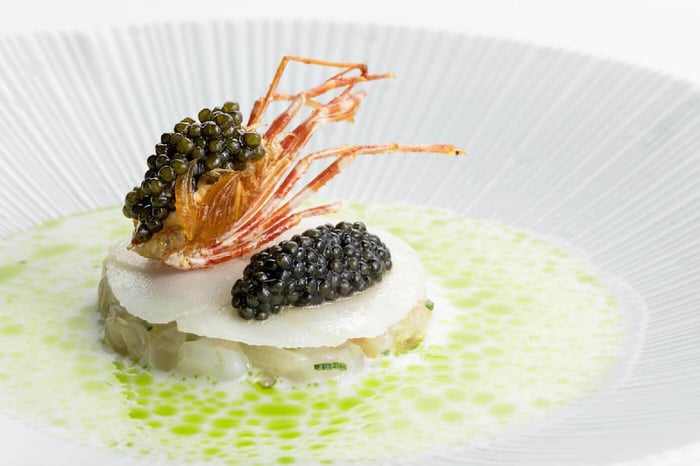 Water quality plays a fundamental role in the health and productivity of aquatic species, particularly sturgeon, the prized source of caviar. As demand for high-quality caviar grows globally, aquaculture facilities and wild fisheries alike must prioritize maintaining optimal water conditions. The delicate balance of oxygen levels, pH, temperature, and contaminants directly influences sturgeon growth, reproduction, and the overall quality of the caviar produced. This article explores how water quality parameters affect sturgeon farming, the biological needs of the species, and the resulting impact on caviar production and market value.
Water quality plays a fundamental role in the health and productivity of aquatic species, particularly sturgeon, the prized source of caviar. As demand for high-quality caviar grows globally, aquaculture facilities and wild fisheries alike must prioritize maintaining optimal water conditions. The delicate balance of oxygen levels, pH, temperature, and contaminants directly influences sturgeon growth, reproduction, and the overall quality of the caviar produced. This article explores how water quality parameters affect sturgeon farming, the biological needs of the species, and the resulting impact on caviar production and market value.
Water Temperature and Sturgeon Growth
Temperature is one of the most critical factors in sturgeon development. These ancient fish thrive in specific temperature ranges, typically between 17°C and 23°C, which support metabolic efficiency and healthy growth. Temperatures outside this range can induce stress, slow growth, and even lead to disease outbreaks. Consistent temperature control is essential in aquaculture settings to maximize survival rates and ensure timely maturation. Suboptimal temperatures not only hinder the growth of sturgeon but also negatively affect egg development, ultimately reducing caviar yield and quality.
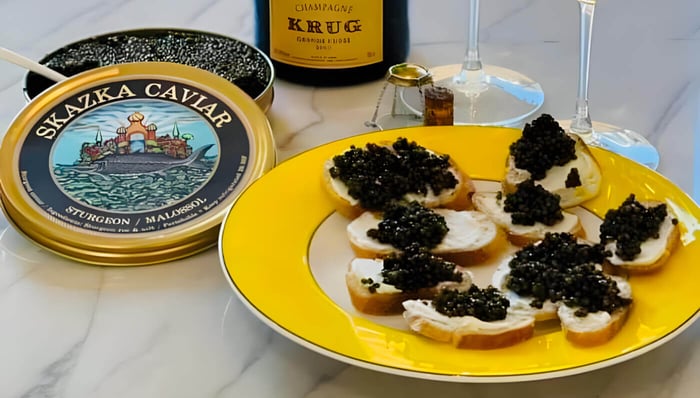
Read: Caviar vs. Fish Roe: Understanding the Key Differences
Dissolved Oxygen Levels and Sturgeon Health
Adequate levels of dissolved oxygen are vital for sturgeon health and caviar production. Sturgeon are highly sensitive to oxygen fluctuations, requiring levels above 5 mg/L to sustain normal metabolic functions. Low oxygen concentrations can lead to hypoxia, weakening the immune system, stunting growth, and compromising reproductive success. Aquaculture operations often employ aeration systems to maintain sufficient oxygen levels, fostering optimal conditions for both juvenile and mature sturgeon. Ensuring proper oxygenation improves overall fish vitality, enhancing the quantity and quality of caviar harvested.
pH Balance and Sturgeon Physiology
Maintaining the appropriate pH balance in water is crucial for sturgeon survival and optimal caviar production. Sturgeon prefer slightly alkaline conditions, with a pH range of 7.5 to 8.5. Water that is too acidic or too basic can cause physiological stress, disrupt nutrient absorption, and lead to higher mortality rates. Prolonged exposure to imbalanced pH levels can negatively impact egg development and reduce caviar quality. Regular monitoring and adjustment of pH levels in aquaculture environments prevent unnecessary stress, promoting healthy fish populations and better caviar yields.
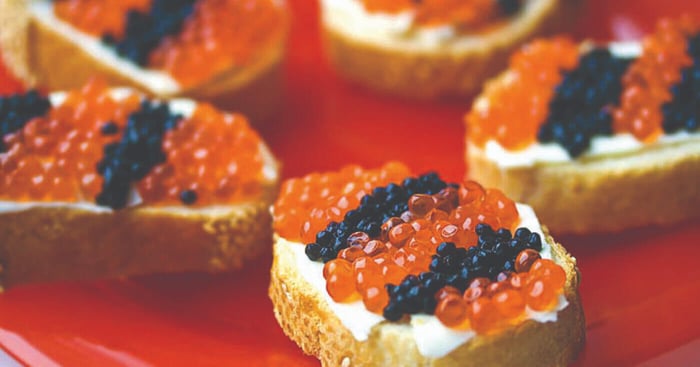
Read: Caviar in Fine Dining: Michelin-Starred Restaurants and Their Signature Dishes
Water Clarity and Contaminant Control
The clarity and cleanliness of water directly influence the health of sturgeon populations. Turbid or contaminated water increases the risk of disease, reduces feeding efficiency, and may introduce toxins that accumulate in sturgeon tissue. Heavy metals, pesticides, and industrial pollutants pose significant threats to sturgeon survival and reproductive capacity. Implementing advanced filtration and sedimentation systems in aquaculture facilities helps remove impurities, safeguarding the fish and ensuring the production of high-grade caviar. Clean water environments reduce mortality and encourage consistent, high-quality caviar output.
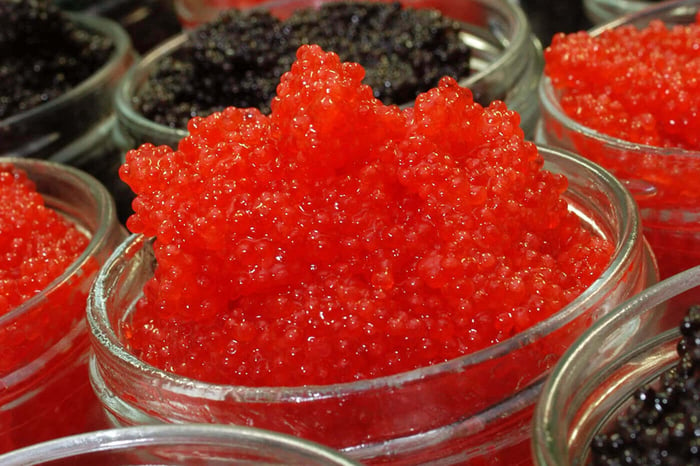
Nutrient Levels and Sturgeon Development
Excessive nutrient levels, particularly nitrogen and phosphorus, can trigger algal blooms and deplete oxygen in the water, creating hostile conditions for sturgeon. While some nutrients are essential for aquatic ecosystems, imbalances can harm fish health and reduce caviar quality. Controlled feeding practices, proper waste management, and biofiltration systems help maintain optimal nutrient levels in aquaculture environments. Balanced nutrient concentrations support sturgeon growth and enhance reproductive efficiency, contributing to higher caviar production rates and superior product quality.
Disease Prevention through Water Management
Water quality management is essential for disease prevention in sturgeon farming. Poor water conditions can facilitate the spread of bacterial, fungal, and parasitic infections, which significantly hinder growth and caviar production. Regular water testing, disinfection protocols, and biosecurity measures reduce the risk of outbreaks. By prioritizing water quality, aquaculture facilities create a stable environment that minimizes disease-related losses and maximizes caviar yield. Healthy sturgeon populations translate directly to increased profitability and improved product reputation in the global market.
Conclusion
Water quality is a cornerstone of successful sturgeon farming and caviar production. From temperature regulation and oxygenation to pH balance and contaminant control, every aspect of water management directly impacts the health of sturgeon and the quality of their prized roe. Aquaculture operations that prioritize rigorous water quality standards foster healthier fish populations, reduce mortality, and enhance caviar production. As the global appetite for premium caviar continues to grow, investing in sustainable water management practices will ensure the longevity and profitability of sturgeon aquaculture.
About the Author
 Igor Fishbeyn - Caviar Purveyor
Igor Fishbeyn - Caviar Purveyor
Igor Fishbeyn is purveyor of fine sturgeon caviar and creator of the Skazka Caviar brand. He is an expert with decades of experience specializing in importing, wholesaling, and retailing the finest quality caviar in the world. Igor frequently writes about caviar news and various topics about the caviar industry. He lives in San Francisco with his wife and daughter.
Shop Skazka Caviar
Browse Our Exclusive Caviar Collection
“River Beluga” Kaluga Sturgeon Caviar
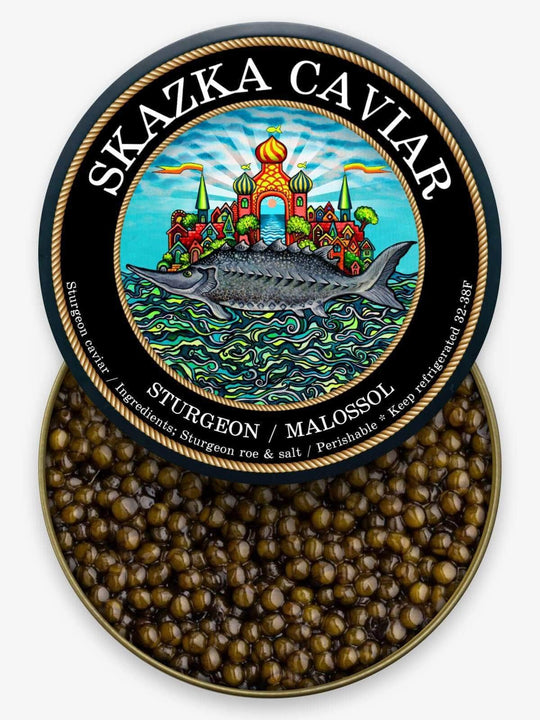
$295
$395
This large, robust caviar is a favorite of connoisseurs. Its firmness provides a satisfying texture that will keep you coming back for seconds and even thirds. Its luxurious chocolate brown color is perfectly evocative of its rich taste. Hints of… read more
“Oprah’s Favorite” Russian Osetra Caviar
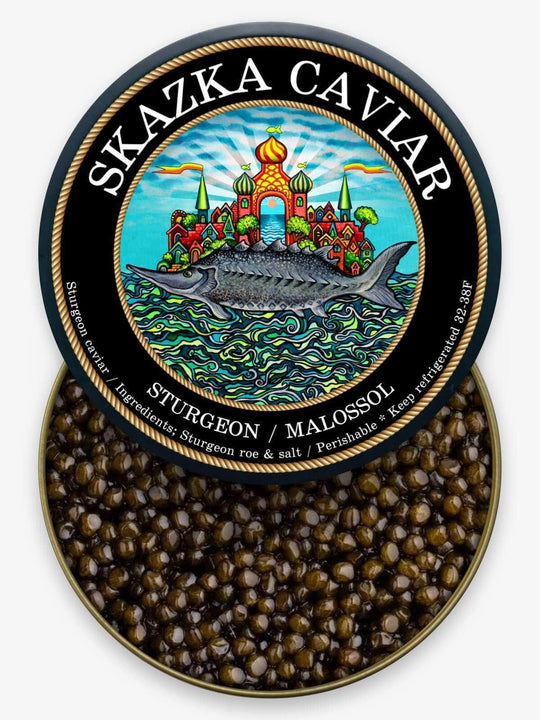
$295
$335
This medium-sized caviar is sure to be the star of any party or function you may throw. Its deep chocolate brown color is indicative of its rich and buttery flavor. Amber Osetra caviar has one of the cleanest tastes of any… read more
"Russian Czar" Beluga Sturgeon Caviar
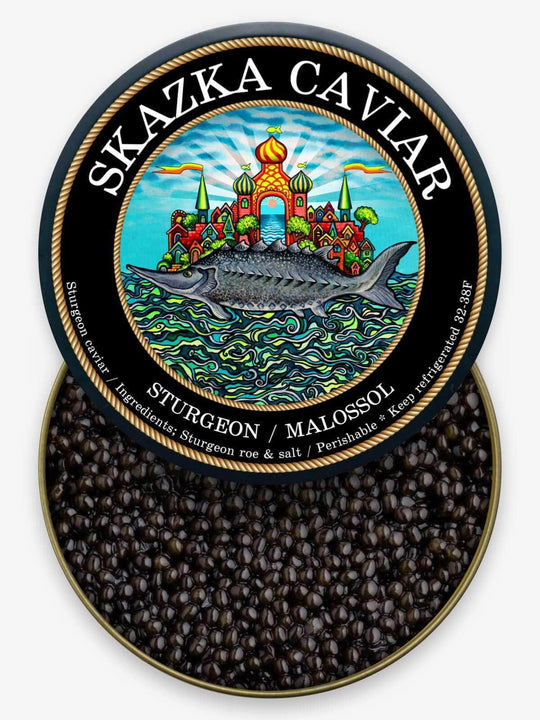
$495
$599
With an incomparable richness, “Russian Czar” Beluga Sturgeon Caviar is a knockout when it comes to fine caviar. Traditionally harvested in Russia, this caviar holds a tradition of greatness throughout history. With buttery notes that linger on the taste buds,… read more
“Tsar Reserve” Golden Osetra Caviar
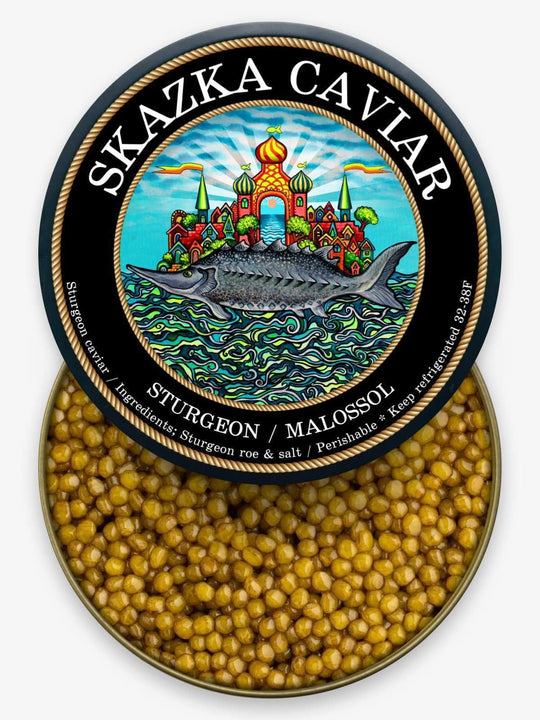
$395
Anyone with a taste for fine caviar will love “Royal Reserve” Golden Osetra Caviar. Its beautiful deep amber color is the first sign you’ll have that you’re in for something special, and once it hits your tongue you’ll know just… read more
Shop Caviar By Type
Shop Black Caviar | Shop Red Caviar | Shop Caviar Accessories
Shop Beluga Caviar | Shop Kaluga Caviar | Shop White Sturgeon Caviar
Shop Osetra Caviar | Shop Salmon Roe | Shop Albino Sturgeon Caviar

